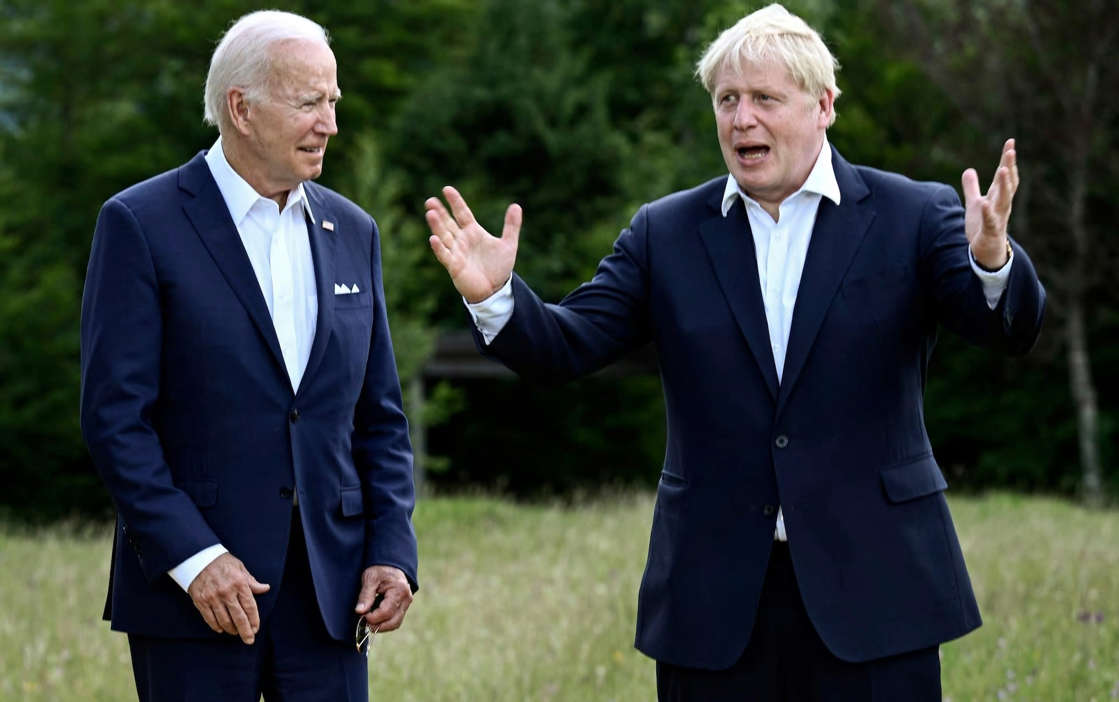U.S. and Canada Tell G7 That Climate Change Policy is More Important Than Feeding People
Say what you will about Boris Johnson, but he does proffer pragmatic solutions to problems.
 With a pending global food shortage only looking worse by the day British Prime Minister Boris Johnson has proposed to use biofuel farmland to grow food that can be consumed by people.
With a pending global food shortage only looking worse by the day British Prime Minister Boris Johnson has proposed to use biofuel farmland to grow food that can be consumed by people.
German Chancellor Olaf Schulz is also supporting the plan. However, Joe Biden and Justin Trudeau have denounced the effort to expand food production in the U.S. and Canada and blocked the framework from G7 policy.
WASHINGTON – […] Mr Johnson will address G7 leaders at a summit in Germany and ask them to repurpose land currently used for crop-based biofuels to grow more food.
The Prime Minister believes using less green fuel would dampen soaring food prices and help avert famines in poorer countries that rely heavily on Ukrainian grain blockaded in ports by Russia.
However, Mr Biden’s officials made it clear on Sunday that Washington will attempt to block the plans in a bid to protect US farmers and avoid jeopardising climate commitments.
Downing Street sources admitted that Mr Johnson’s plan would fail without the support of all G7 nations. The Telegraph understands Germany is backing the plan, but it has been rebuffed by the US and Canada. (read more).
North American farmers, experts in crop efficiency and production, could easily fill the gap on any missing food products from Ukraine. Unlike Europe North America has more than one annual crop cycle each year. We are fortunate in our abundance. However, the multinational corporations, Big Ag, would need to see support from U.S. and Canadian agriculture policy before expanding production for food.
The Biden administration has already increased the mandate for biofuel ethanol and is charging gasoline refineries more money if they do not use 15% ethanol (E15) year-round. This Biden administration E15 mandate, or pay a fee, is part of what has driven up the price of gasoline.
The EPA enforces the biofuel standard by requiring refineries to submit purchase credits (known as Renewable Identification Numbers, or RINs) to the Environmental Protection Agency (EPA) proving they purchased ethanol or biofuel to mix with refined gasoline. {Go Deep}
This enforcement requirement sets up a system where the RIN credits are bought and sold by small refineries who do not have or want the infrastructure to do E15 blending. Those refineries purchase second-hand RIN credits from parties that blended or imported biofuels directly. This sets up a secondary income stream, a trading market for the larger oil companies, refineries and importers.
[NOTE: The RIN credit trading platform is similar to what we might expect to see if the ‘Carbon Trading’ scheme was ever put into place.] However, now that the summer biofuel requirements for blended gasoline have gone from 10% to 15%, the price of the RIN credits has increased. This costs refineries billions in additional expenses,…. which means the cost of non E15 gasoline from the refineries has increased…. which means the price of non E15 gasoline at the pump has increased.
If the U.S. and Canada were really concerned about food insecurity and the potential for famine, Joe Biden would drop the E15 requirement (the term “waiver” is a misnomer in this policy that actually means government requirement) then less biofuel would be needed and less RIN credits would need to be purchased. This would allow North American farmers to produce food crops for people and would simultaneously drop the price of gasoline (no RIN credits needed).
However, the U.S. (Biden) and Canada (Trudeau) will not generate more food for people because that would undercut the effort for climate change.
Maintaining the climate change agenda is more important than feeding people, according to Justin Trudeau and Joe Biden.





Post a Comment